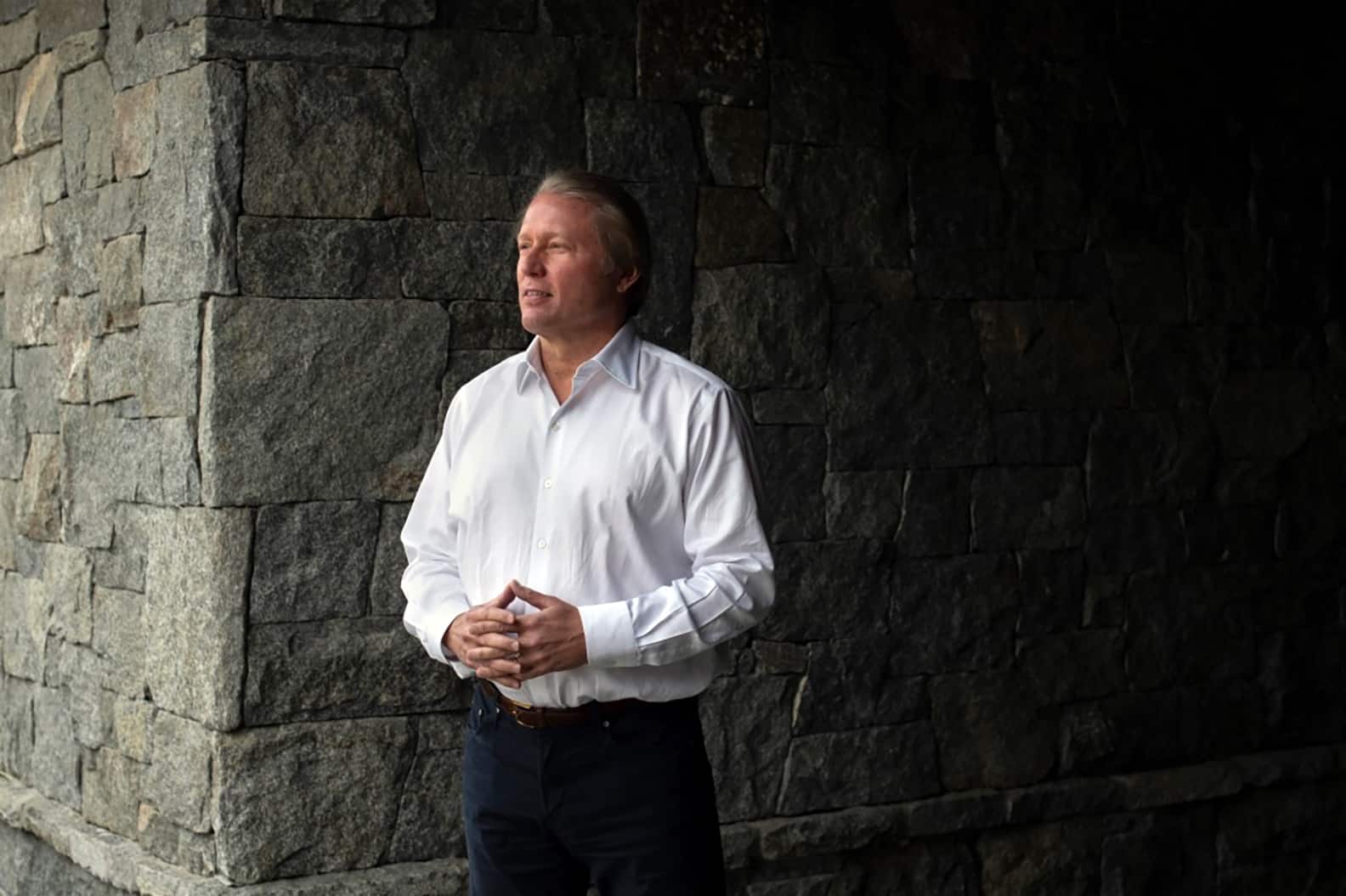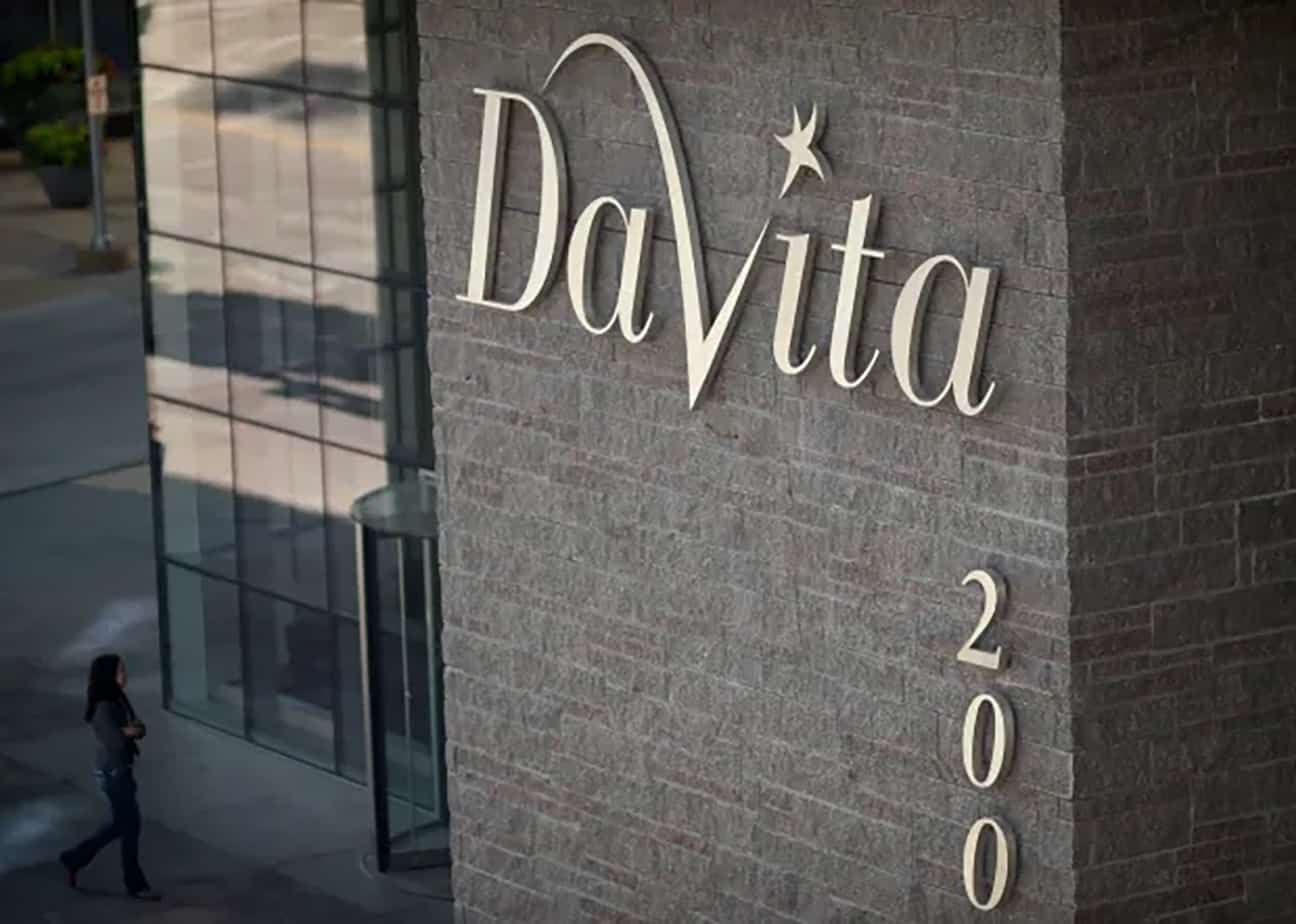A gentleman’s agreement between former DaVita CEO Kent Thiry and the CEO of a competitor forced top employees seeking to move between those two companies to first disclose their job prospects to their bosses, witnesses testified in federal court Wednesday.
What prosecutors call the “inform-your-boss” provision was tucked inside an informal, unwritten agreement between Thiry and Andrew Hayek, the CEO of Illinois-based Surgical Care Affiliates, three witnesses said. Federal prosecutors allege that agreement and two similar agreements, which also prohibited companies from recruiting each other’s executives, are criminal.
“It kept SCA executives from leaving and going to DaVita and it kept DaVita executives from leaving and going to SCA,” Bridget “Bridie” Fanning, a former top recruiter for Surgical Care Affiliates, testified Wednesday.
Thiry and the company he ran for two decades each face three counts of conspiracy in restraint of trade to allocate employees. Convictions on all counts could send Thiry to federal prison for up to 30 years and cost DaVita up to $300 million in penalties. Wednesday was the third day of the trial, which is expected to last two or three weeks.
Defense attorneys have acknowledged that so-called non-solicitation agreements existed between DaVita and SCA, and between DaVita and two other companies. But they argue those agreements were not criminal because they didn’t corner the market for health care executives, since there are hundreds of such companies in the U.S. On Wednesday, they questioned whether non-solicitation agreements are even uncommon.
Fanning, a witness for the prosecution, agreed with defense attorney Tom Melsheimer that “CEOs often make agreements with other CEOs” regarding hiring.
“When I was at General Electric, CEO Jeff Immelt made an agreement with the CEO of Bank of America not to hire each other’s employees. That was hundreds of thousands of people put off-limits between the two companies,” Fanning testified.
“What those were, really, were non-solicit agreements. Which is, ‘we’re not going to proactively reach out to people but if people apply then they’re fair game.’ I’ve come across them multiple times,” she said.
What set Thiry and Hayek’s agreement apart from similar agreements was the inform-your-boss requirement, according to Fanning. In decades of recruiting executives for some of America’s largest corporations, she had never seen such a provision. Fanning testified that among top executives, telling your boss you are applying elsewhere often leads to immediate resignation.
The government agreed not to prosecute Fanning in exchange for her testimony against Thiry and DaVita. The recruiter also turned over 38,000 emails to the government. Melsheimer, an attorney for Thiry, pressed Fanning on whether Hayek ever explicitly said in those 38,000 emails that she couldn’t recruit from DaVita or that DaVita employees had to inform their boss first.

Kent Thiry, former CEO of the dialysis giant DaVita, faces up to 30 years in prison if convicted on all three counts of conspiracy in restraint of trade to allocate employees. (Rachel Woolf/Kaiser Health News)
“(Hayek) said they have to notify their supervisors and let them know they want to be considered by SCA,” Fanning responded.
Defense attorneys have cast doubt on whether the gentleman’s agreement was harmful to employees of the two companies. John Dodds, who represents DaVita, asked Michael Rucker, a former DaVita executive who went to SCA, about that Wednesday.
“Despite the existence of the gentleman’s agreement, there was recruiting and hiring back and forth between SCA and DaVita after 2012, is that fair to say, sir?” Dodds asked, referring to the year the agreement was allegedly implemented.
“Yes,” Rucker said.
Surgical Care Affiliates is scheduled to go on trial next January, in Texas, for its alleged role in the non-solicitation agreements. Unlike Thiry, SCA’s former CEO, Hayek, will not be prosecuted after agreeing to testify against Thiry and DaVita this week.
“We agreed not to solicit each other’s senior executives,” Hayek told the court Wednesday, referring to himself and Thiry. “If a senior executive was already looking at an outside job and had told their supervisor, then we could solicit.”
“If they had not told their boss or supervisor, we couldn’t advance,” Hayek added.
“And who proposed that part about requiring a supervisor notification?” prosecutor Megan Lewis asked.
“Mr. Thiry,” he said.
A gentleman’s agreement between former DaVita CEO Kent Thiry and the CEO of a competitor forced top employees seeking to move between those two companies to first disclose their job prospects to their bosses, witnesses testified in federal court Wednesday.
What prosecutors call the “inform-your-boss” provision was tucked inside an informal, unwritten agreement between Thiry and Andrew Hayek, the CEO of Illinois-based Surgical Care Affiliates, three witnesses said. Federal prosecutors allege that agreement and two similar agreements, which also prohibited companies from recruiting each other’s executives, are criminal.
“It kept SCA executives from leaving and going to DaVita and it kept DaVita executives from leaving and going to SCA,” Bridget “Bridie” Fanning, a former top recruiter for Surgical Care Affiliates, testified Wednesday.
Thiry and the company he ran for two decades each face three counts of conspiracy in restraint of trade to allocate employees. Convictions on all counts could send Thiry to federal prison for up to 30 years and cost DaVita up to $300 million in penalties. Wednesday was the third day of the trial, which is expected to last two or three weeks.
Defense attorneys have acknowledged that so-called non-solicitation agreements existed between DaVita and SCA, and between DaVita and two other companies. But they argue those agreements were not criminal because they didn’t corner the market for health care executives, since there are hundreds of such companies in the U.S. On Wednesday, they questioned whether non-solicitation agreements are even uncommon.
Fanning, a witness for the prosecution, agreed with defense attorney Tom Melsheimer that “CEOs often make agreements with other CEOs” regarding hiring.
“When I was at General Electric, CEO Jeff Immelt made an agreement with the CEO of Bank of America not to hire each other’s employees. That was hundreds of thousands of people put off-limits between the two companies,” Fanning testified.
“What those were, really, were non-solicit agreements. Which is, ‘we’re not going to proactively reach out to people but if people apply then they’re fair game.’ I’ve come across them multiple times,” she said.
What set Thiry and Hayek’s agreement apart from similar agreements was the inform-your-boss requirement, according to Fanning. In decades of recruiting executives for some of America’s largest corporations, she had never seen such a provision. Fanning testified that among top executives, telling your boss you are applying elsewhere often leads to immediate resignation.
The government agreed not to prosecute Fanning in exchange for her testimony against Thiry and DaVita. The recruiter also turned over 38,000 emails to the government. Melsheimer, an attorney for Thiry, pressed Fanning on whether Hayek ever explicitly said in those 38,000 emails that she couldn’t recruit from DaVita or that DaVita employees had to inform their boss first.

Kent Thiry, former CEO of the dialysis giant DaVita, faces up to 30 years in prison if convicted on all three counts of conspiracy in restraint of trade to allocate employees. (Rachel Woolf/Kaiser Health News)
“(Hayek) said they have to notify their supervisors and let them know they want to be considered by SCA,” Fanning responded.
Defense attorneys have cast doubt on whether the gentleman’s agreement was harmful to employees of the two companies. John Dodds, who represents DaVita, asked Michael Rucker, a former DaVita executive who went to SCA, about that Wednesday.
“Despite the existence of the gentleman’s agreement, there was recruiting and hiring back and forth between SCA and DaVita after 2012, is that fair to say, sir?” Dodds asked, referring to the year the agreement was allegedly implemented.
“Yes,” Rucker said.
Surgical Care Affiliates is scheduled to go on trial next January, in Texas, for its alleged role in the non-solicitation agreements. Unlike Thiry, SCA’s former CEO, Hayek, will not be prosecuted after agreeing to testify against Thiry and DaVita this week.
“We agreed not to solicit each other’s senior executives,” Hayek told the court Wednesday, referring to himself and Thiry. “If a senior executive was already looking at an outside job and had told their supervisor, then we could solicit.”
“If they had not told their boss or supervisor, we couldn’t advance,” Hayek added.
“And who proposed that part about requiring a supervisor notification?” prosecutor Megan Lewis asked.
“Mr. Thiry,” he said.

